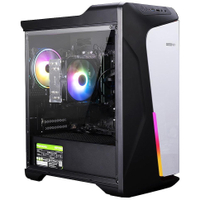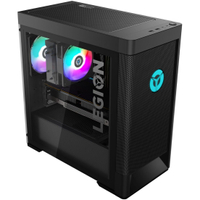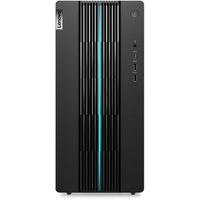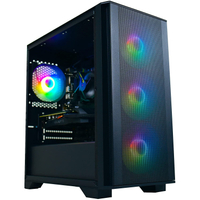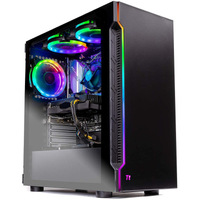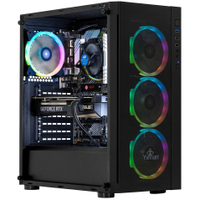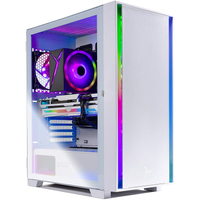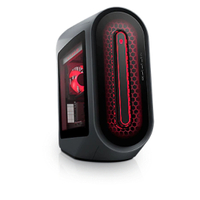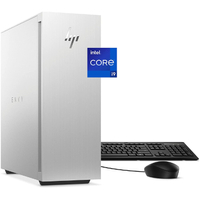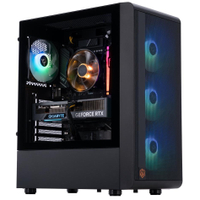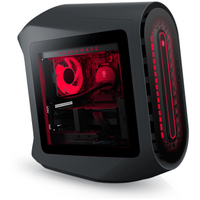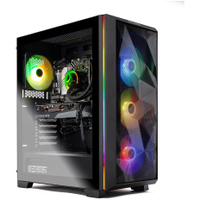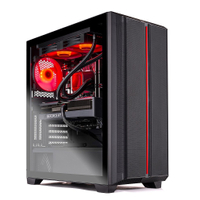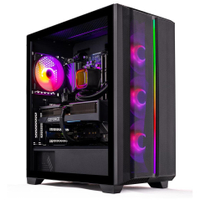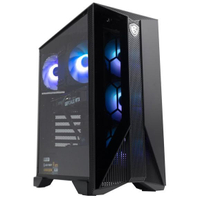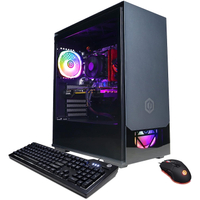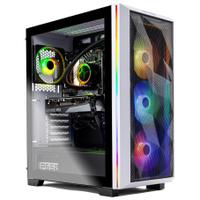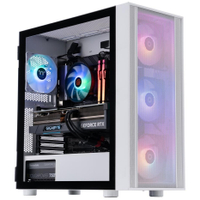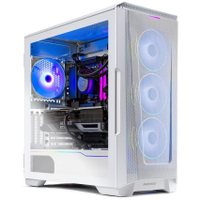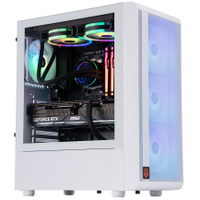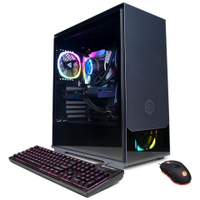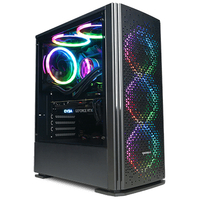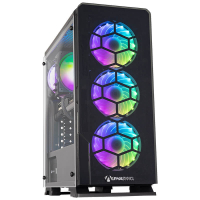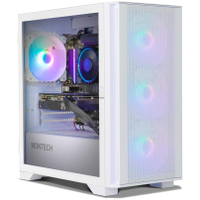
$500 – $1,000: Entry-level machines
$1,000 – $2,000: The sweet spot
$2,000+: The luxury end
UK Deals: PC penny savers
GPU hierarchy: How the graphics cards match up
The best cheap gaming PC is all about finding the PC deal that suits your wallet and gaming needs. Whether you're after an entry-level rig that can deal with a 1080p load or a high-spec machine capable of 4K gaming and beyond, you want to get as much tech for your cash as possible.
And that's where we come in, trawling through the systems on offer this week to give you the best idea of where you should spend your money. It's not easy because PC gaming has become a costly hobby in recent years. Unless you know where to look...
We're splitting our rigs into three categories: Entry-level, Sweet spot, and Luxury. In the middle, the $1,000 – $2,000 mark is where you'll find the broadest range of possible systems and arguably is where today's best gaming PC deals are likely to exist. But at both ends of the price spectrum, knowing you're getting the best gaming hardware for your money is important.
We use all our combined decades of technological PC gaming expertise to determine whether something is a good deal, and you can rest assured that we'll only recommend the best gaming PC deals right here. If something's super cheap doesn't automatically make it worth the money, and likewise, just because a system is $2,500 doesn't mean it can't be a great value.
Where are the best gaming PC deals?
- Amazon - Save hundreds of dollars on selected prebuilt PCs (opens in new tab)
- iBuypower - Fast shipping machines with up to $400 off (opens in new tab)
- Best Buy - RTX 3080 gaming desktops for under $3K (opens in new tab)
- Lenovo - Lenovo Legion gaming machines with up to $300 savings (opens in new tab)
- Newegg - Stellar savings on RTX 30-series gaming PCs (opens in new tab)
- Dell - Up to $750 saved on Alienware Aurora gaming PCs (opens in new tab)
- HP - Save over $500 on all-in-one PCs (opens in new tab)
- Corsair - Some ridiculous savings on compact gaming PCs (opens in new tab)
- NZXT - streaming-focussed gaming PCs with $100 off (opens in new tab)
Nvidia GeForce-powered gaming PCs - Yeyian Katana X10 | RTX 3060 Ti |
$1,399$949 (opens in new tab) - Skytech Chronos Gaming PC | RTX 4070 Ti |
$1,999.99$1,799.99 (opens in new tab) - ABS Eurus Aqua | RTX 4080 |
$2,579.99 $2,299.99 (opens in new tab)
AMD Radeon-powered gaming PCs - Forge Gladiator | RX 6600 | $799 (opens in new tab)
- CyberpowerPC Gamer Master | RX 7900 XT | $2,089.99 (opens in new tab)
In the UK - Scan - Gaming PCs with great discounts at every price range (opens in new tab)
- Overclockers UK - Prebuilts and bundles with up to £400 off (opens in new tab)
- Cyberpower PC - £200 off last-gen prebuilt gaming PCs (opens in new tab)
- Ebuyer - Up to £150 off RTX 3060 Ti gaming PCs (opens in new tab)
- Box - Save £400 on last-gen prebuilts (opens in new tab)
- CCL - genuine gaming PCs for less than £1,000 (opens in new tab)
$500–$1,000
$1,000–$2,000
$2,000+
UK gaming PC deals
Graphics card hierarchy
The most important component for any gaming PC build will always be the graphics card. That will give you the best idea about how one machine matches up with another just in terms of raw gaming performance.
Below, we've listed the slew of GPUs we've had over the past couple of years listed in terms of their Time Spy Extreme index score as a way to put them in some consistent hierarchy.
Click the button in the top right to enhance!

Should I build my own gaming PC or buy a prebuilt?
One of the biggest advantages of putting together your own budget gaming PC build is the ability to choose every single component in the system. This allows you to spend time shopping around for deals and finding the perfect combination of parts to fit your budget and performance needs. The downside for most inexperienced builders is that this whole process can take some time and has the potential to cause quite a headache if something goes wrong. This is where prebuilt gaming PCs really shine.
When you pay the premium to configure or purchase a prebuilt PC, you are paying for more than just the parts. You are paying for warranty service, support, and the peace of mind that your system was put together by professionals. These are some of the things we value highly when considering the best budget gaming PCs. We also look at other unique selling points like design, upgradability, and anything you couldn't do when building it yourself.
Now that graphics cards are regularly available, and the silicon shortage is starting to clear up, building your own PC is much easier than it was before. That said, a prebuilt rig is still a reliable way to get your desired graphics card.
For most users that don't have the luxury of spending over $1000 on a prebuilt gaming PC, upgradability and performance per dollar are paramount. When we decided to choose our top choices for budget prebuilt gaming PCs, we looked at almost every major manufacturer and system integrator to find the best combination of value, reliability, customer feedback, design, and performance under $500 and under $1,000.
We still highly recommend the experience of building it yourself, but if you can't do that, one of the systems above will have you gaming in short order.
What is a decent price for a gaming PC
The $1,000 - $1,500 mark is probably around the sweet spot for a new gaming PC. That will get you a graphics card that can nail 1440p at solid frame rates and a really good supporting spec. That should mean a relatively sizeable NVMe SSD, around 500GB, as well as 16GB of speedy memory and a modern CPU.
Is PC gaming better than console?
Unquestionably. In real terms, it's more expensive in terms of hardware, but there is a games library stretching back decades that no other gaming platform can possibly match. Games are also regularly cheaper or free on PC, too.
The PC is also more capable of doing more things than a games console, too. Try browsing the web on your PlayStation, and you'll know what we mean. It can also be portable, in either laptop or Steam Deck style.
What PC is equivalent to a PS5?
We suggest that the AMD RX 6700 GPU will deliver around the same level of raw graphics performance as Sony's PS5. That's an OEM part, so you'll only find it in a prebuilt gaming PC, but it's an 11.3 TFLOP GPU versus the 10.3 TFLOP of the PS5.
Those numbers aren't wholly comparative, but you would also need an 8-core CPU, 16GB of memory (though the PS5's is spread between GPU and system), and a 500GB+ SSD.
